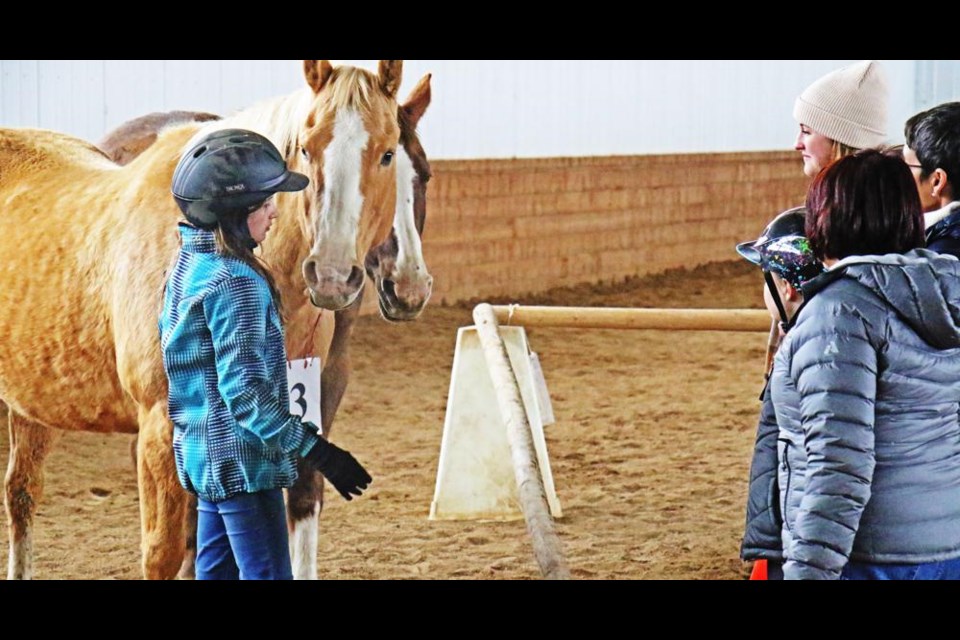WEYBURN – A small group of families and individuals came out to the Roughbark arena near Trossachs on Hayley Moats’ farm, to see a demonstration of an equine therapy program.
The group was a mix of individuals from area farms, a mom with three daughters, and the founding director of Inclusion Weyburn, Jackie Wilson, who wanted to check out the program for their client families.
The demo day included having individuals with horses in the arena, and then a group game involving horses, both with a view to understanding themselves better in different circumstances.
The demonstration was of the Eagala Model of equine therapy, offered by the Joshua Tree Learning Centre in Regina. They operate the program in three locations, including the Roughbark arena at Trossachs, Bear Creek arena at Lumsden, and the Hidden Creek arena at Balgonie.
The program involves two professionals, a mental health professional, and an equine specialist, along with the horses.
No horse-riding is involved, as the clients are on the arena floor interacting with the horses, and the two professionals oversee the session, and set certain tasks for the clients to discover they work and interact with the horses.
For the one-on-one demo, mental health specialist Deanna Schwindt worked with equine specialist Hayley Moats, and they guided the individuals with comments and questions about what they were thinking and how they interacted with the horses.
Later, those present were divided into two large teams, and each team had to work as a group to get a horse to go into a pen area without the use of a halter or rope. They could only use their voices, or hands on the horse’s head and neck, with one person interacting with the horse and directing the group to assist or offer suggestions.
For the purpose of the game, the team had to interlock arms and walk in a line, and moved as the individual suggested to help guide the horse to a pen area.
One team had a horse that did not want to go into a pen, and numerous strategies were used to try and guide the horse in.
As the organizers pointed out later, the benefits and lessons are in the journey, not the completion of tasks given by the team.
Moats pointed out, “It’s very client-led. We take directions of where the client is at.”
Moats added they may see something in the way a horse acted or did something, but if the client didn’t see it or notice it, then it doesn’t matter, and the facilitators won’t bring it up to the client.
“You feel like you want the horse to like you – at least, I do,” said Wilson, after doing a one-on-one demo with a horse in the arena. “People don’t like to be pushed.”
According to the “Eagala Model” description provided to the attendees, the horse arena is a safe place for a person to “think outside the box” and define or redefine what success means.
As the horses are unpredictable, the session may involve success, failure, adventure, risk-taking and uncertainty. The belief behind the program is that individuals have the best solutions within themselves to solving difficulties or problems in their lives.
As for why horses are used, horses are social animals, and like humans, have defined roles within the herd, and they also have the ability to read and respond to non-verbal communication.
Horses can remind people of others in their lives, or things, obstacles or ideas, while they have distinct personalities, attitudes and moods, so an approach that might work with one horse may not work with another.
It takes work to develop relationships with a horse, so participants need to be engaged physically, emotionally and mentally.
Information on the program points out the Eagala Model is not horsemanship, and there is no “right way” to do a task, and the goal is not to educate a person about horses.
It’s also noted that Eagala is not talk therapy, as the main focus of the client is on the horses, and there may be long periods of silence during a session.




